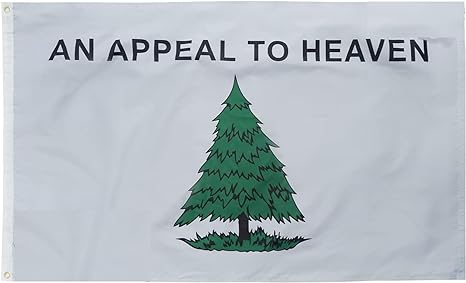- My Forums
- Tiger Rant
- LSU Recruiting
- SEC Rant
- Saints Talk
- Pelicans Talk
- More Sports Board
- Fantasy Sports
- Golf Board
- Soccer Board
- O-T Lounge
- Tech Board
- Home/Garden Board
- Outdoor Board
- Health/Fitness Board
- Movie/TV Board
- Book Board
- Music Board
- Political Talk
- Money Talk
- Fark Board
- Gaming Board
- Travel Board
- Food/Drink Board
- Ticket Exchange
- TD Help Board
Customize My Forums- View All Forums
- Show Left Links
- Topic Sort Options
- Trending Topics
- Recent Topics
- Active Topics
Started By
Message
re: Kentucky Court rules Printer does not have to print Gay Pride shirts
Posted on 5/16/17 at 3:33 pm to MButterfly
Posted on 5/16/17 at 3:33 pm to MButterfly
quote:
Kentucky Court rules Printer does not have to print Gay Pride shirts
okay someone stop the merry go round I want off.
Posted on 5/16/17 at 3:45 pm to BaylorTiger
quote:
Private business opened to the public has to play by the rules...you can't discriminate based on race, age, etc.
Gays are not a protected class according to title 7
quote:
Protected Classes Title VII prohibits discrimination on account of: Race or Color This category includes blacks, whites, persons of Latino or Asian origin or descent, and indigenous Americans (Eskimos, Native Hawaiians, Native Americans). The prohibition on discrimination based on "color" also has been interpreted by some courts to mean that a light-skinned black worker could pursue a discrimination case based on the actions of her darker-skinned supervisor. See, e.g., Walker v. Secretary of Treasury, IRS, 742 F. Supp. 670 (N.D. Ga. 1990), aff'd, 953 F.2d 650 (11th Cir.), cert. denied, 506 U.S. 853 (1992). National Origin The Supreme Court has interpreted national origin as referring to "the country where a person was born, or, more broadly, the country from which his or her ancestors came." Espinoza v. Farah Manufacturing Co., 414 U.S. 86, 88 (1973). The term does not include discrimination based solely on a person's citizenship. Id.; Fortino v. Quasar Co., 950 F.2d 389, 392 (7th Cir. 1991). The courts have generally upheld requirements that an employee be able to communicate in English, where the requirement is job-related. See, e.g., Garcia v. Rush-Presbyterian-St. Luke's Medical Center, 660 F.2d 1217, 1222 (7th Cir. 1981). The EEOC's position is that a rule requiring bi-lingual employees to only speak English at work is a "burdensome term and condition of employment" that presumably violates Title VII and should be closely scrutinized. 29 C.F.R. § 1606.7(a). Courts that have considered the issue, however, have generally upheld English-only rules. See, e.g., Garcia v. Spun Steak Co., 998 F.2d 1480 (9th Cir. 1993); Garcia v. Gloor, 618 F.2d 264 (5th Cir. 1980), cert. denied, 449 U.S. 1113 (1981). Discrimination based on national origin violates Title VII unless national origin is a bona fide occupational qualification (BFOQ) for the job in question. The employer must show that the discriminatory practice is "reasonably necessary to the normal operation of [the] particular business or enterprise." 42 U.S.C. § 2000e-2(e)(1). The courts and the EEOC interpret the BFOQ exception very narrowly. See 29 C.F.R. § 1604.2(a). Sex This provision prohibits discrimination based on gender, and applies to both men and women. Employer rules or policies that apply only to one gender violate Title VII. Phillips v. Martin Marietta Corp., 400 U.S. 542 (1971) (rule prohibiting having children applied only to women). Employers also may not provide different benefits to women than to men. City of Los Angeles Department of Water and Power v. Manhart, 435 U.S. 702 (1978). Title VII also prohibits sexual harassment, as described more fully below. In 1978, Congress amended Title VII to make it clear that the statute prohibited discrimination because of pregnancy. 42 U.S.C. § 2000e-(k). Employers may not consider an employee's pregnancy in making employment decisions. Employers must treat pregnancy-related disabilities in a similar fashion to other disabilities that similarly affect an employee's ability to work. Discrimination based on sex violates Title VII unless sex is a bona fide occupational qualification (BFOQ) for the job in question Religion The term "religion" includes "all aspects of religious observance and practice, as well as belief." 42 U.S.C. § 2000e-(j). The EEOC Guidelines state that protected religious practices "include moral or ethical beliefs as to what is right and wrong which are sincerely held with the strength of traditional religious views." 29 C.F.R. § 1605.1. Sincerity of religious belief is an issue for the trier of fact. E.E.O.C. v. Ilona of Hungary, Inc., 97 F.3d 204 (7th Cir. 1997). The statute imposes a duty to "reasonably accommodate to an employee's or prospective employee's religious observance or practice" unless doing so would impose an "undue hardship on the conduct of the employer's business." 42 U.S.C. § 2000e-(j). Title VII exempts from coverage a "religious corporation, association, educational institution, or society with respect to the employment of individuals of a particular religion to perform work connected with the carrying on by such corporation, association, educational institution, or society of its activities." 42 U.S.C. § 2000e-1(a). Religious discrimination is also not unlawful under Title VII where religion is a BFOQ for the job in question. 42 U.S.C. § 2000e-2(e)(1).
LINK
Posted on 5/16/17 at 3:50 pm to MButterfly
Target should print them
And see how they make out
And see how they make out
Posted on 5/16/17 at 4:06 pm to DisplacedBuckeye
quote:You previously said church, which is what I was replying to.
Not churches. Christians.
Posted on 5/16/17 at 4:09 pm to FooManChoo
quote:
You previously said church, which is what I was replying to.
And you said Christians, which is what I replied to.
Posted on 5/16/17 at 4:18 pm to DisplacedBuckeye
quote:I actually said both. There were two thoughts combined together as Christians are part of the broader church, yet churches as organizational bodies do not typically engage in political discourse, such as through litigation or legislation.
And you said Christians, which is what I replied to.
My quote:
"Boycotts are the typical response to situations where Christians don't like what a business does. An active push for legislation is atypical and litigation is an even further edge case that rarely happens because that's not how churches operate."
Posted on 5/16/17 at 4:18 pm to GeauxLSUGeaux
quote:
Good, the gays could just go somewhere else that want their money.
They can surely find somebody else to print their shirts. It's not like there's a paucity of homos in the graphic arts field.
Posted on 5/16/17 at 4:26 pm to FooManChoo
quote:
My quote:
"Boycotts are the typical response to situations where Christians don't like what a business does. An active push for legislation is atypical and litigation is an even further edge case that rarely happens because that's not how churches operate."
Indeed.
Posted on 5/16/17 at 4:28 pm to DisplacedBuckeye
You win. I'm stupid and can't compete with your linguistic gymnastics. You know what I'm saying better than I do. 
Posted on 5/16/17 at 4:30 pm to FooManChoo
quote:
You know what I'm saying better than I do.
Apparently.
The distinction is quite irrelevant, though.
Posted on 5/16/17 at 4:42 pm to DisplacedBuckeye
quote:It's quite relevant. You initially said before editing: "Fine with this, but it would be interesting to see what would happen in Kentucky if a gay printer refused a job to print some Jesus shirts for a church."
The distinction is quite irrelevant, though.
What a professing Christian is going to do is different than what a church is going to do because churches are classified as non-profit organizations and aren't supposed to participate in political activities. There is a pretty big distinction there.
You'll find professing Christians engaged in all sorts of activities at any given time. They will sue, call their legislators, get elected to government positions and propose legislation, or even attack people (verbally, physically, legally, or whatever way you can think of). Churches, on the other hand, don't typically get in the ring. That's why I made the distinction in response to your original statement.
I won't respond again so say what you wish. I'm growing weary of you nitpicking clear wording and plain meaning to twist arguments to your contrarian ways, so you can have the last word if you'd like.
Posted on 5/16/17 at 4:56 pm to FooManChoo
quote:
It's quite relevant.
It isn't, not for my point.
Anything else you have to say isn't important until you admit that.
Popular
Back to top


 0
0








